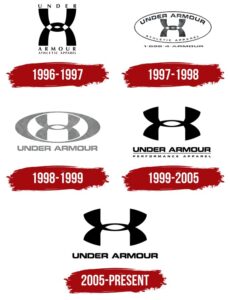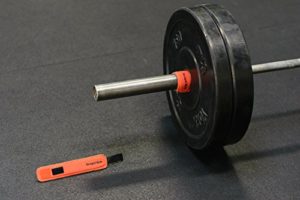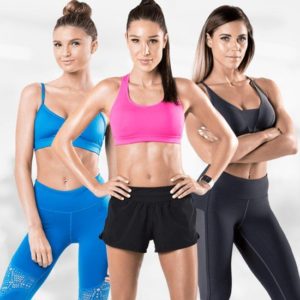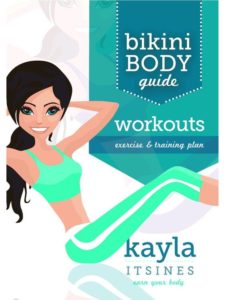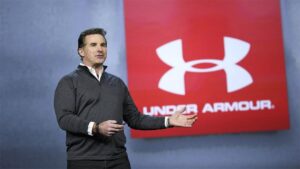 Under Armour was founded by Kevin Plank in 1996. He was 24 years old and started out his company where most young entrepreneurs do, his grandmother’s basement in Washington, D.C. While in college Plank was the special team’s captain of the University of Maryland football team. So naturally he was into sports and saw an opportunity for a clothing brand. He expressed how he hated having to change out of sweaty t-shirts worn under his jerseys. He found that his compression gear stayed dry, and he realized he needed to create his clothing out of that material. His early sales were out of the trunk of his car on the East Coast.
Under Armour was founded by Kevin Plank in 1996. He was 24 years old and started out his company where most young entrepreneurs do, his grandmother’s basement in Washington, D.C. While in college Plank was the special team’s captain of the University of Maryland football team. So naturally he was into sports and saw an opportunity for a clothing brand. He expressed how he hated having to change out of sweaty t-shirts worn under his jerseys. He found that his compression gear stayed dry, and he realized he needed to create his clothing out of that material. His early sales were out of the trunk of his car on the East Coast.
His first big sale was $17,000 worth of gear. He sent his first prototypes to his teammates and friends to see what they thought of it. With this exercise he was then able to tweak his design and fabric choice with their feedback. Kevin decided to use the British spelling for “armour” since it was still available to be taken for his clothing line. Under Armour got a huge deal when Warner Brothers used the brand in two films, Any Given Sunday and The Replacements. When it was all said and done Plank was able to purchase an ad in ESPN The Magazine which earned him and his brand $750,00 in sales. In 2000, Under Armour became the main outfitter of the ne XFL football league. From there they earned many investments in the millions of dollars range. From there they were able to put funds to better branding, commercials, and store fronts. One main thing that has stuck is their motto “Protect this house”. This motto has been around for a very long time and is an example of keeping and sticking to something that they believe in. As many of us know, Under Armour is a very successful brand that was formed from a need for better athletic gear and look where they are today!
